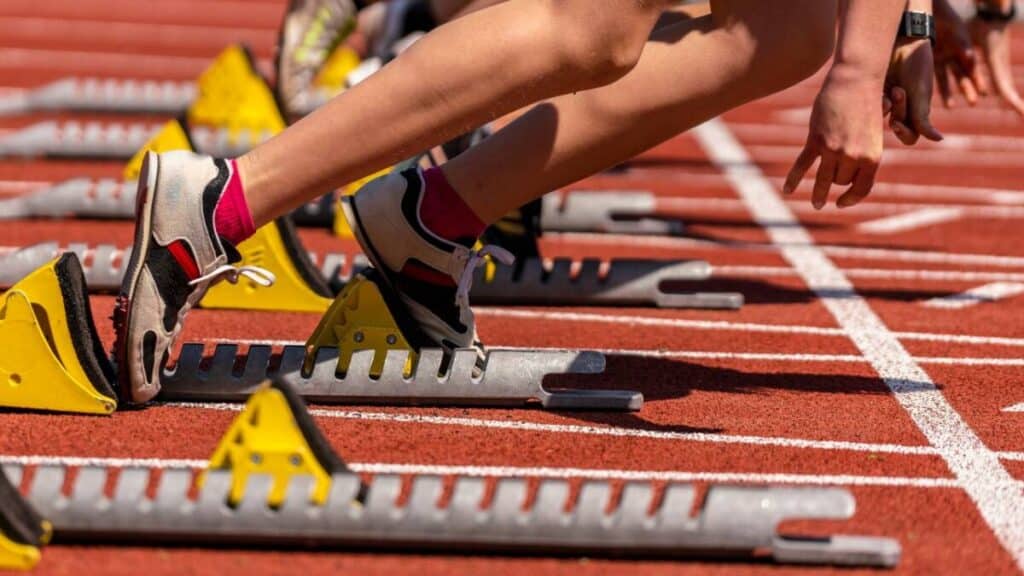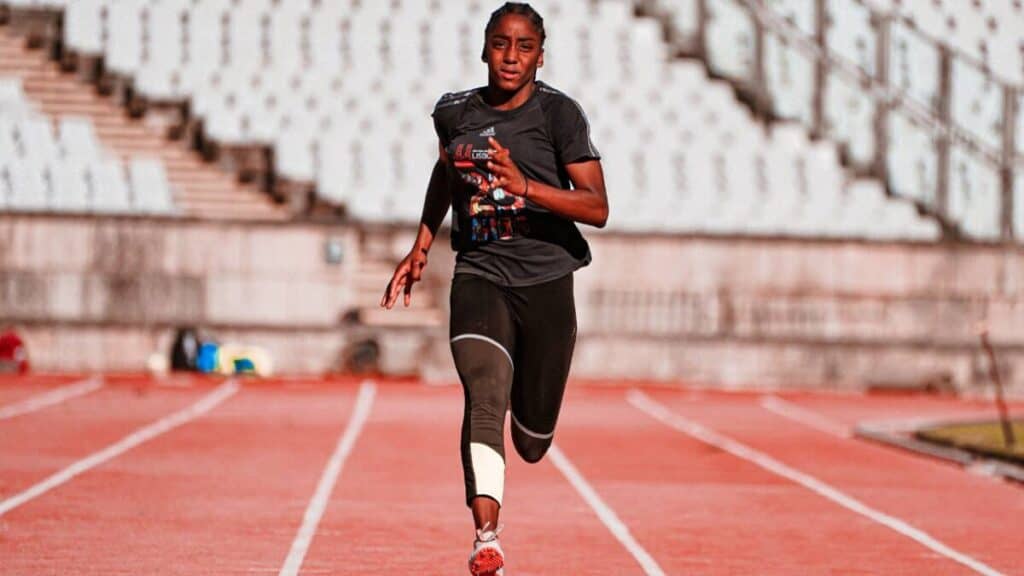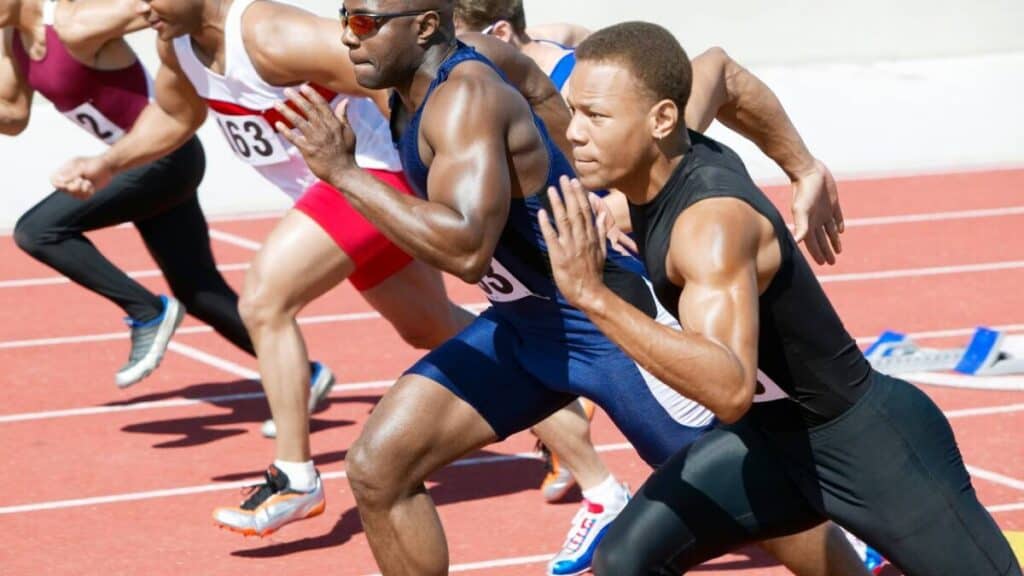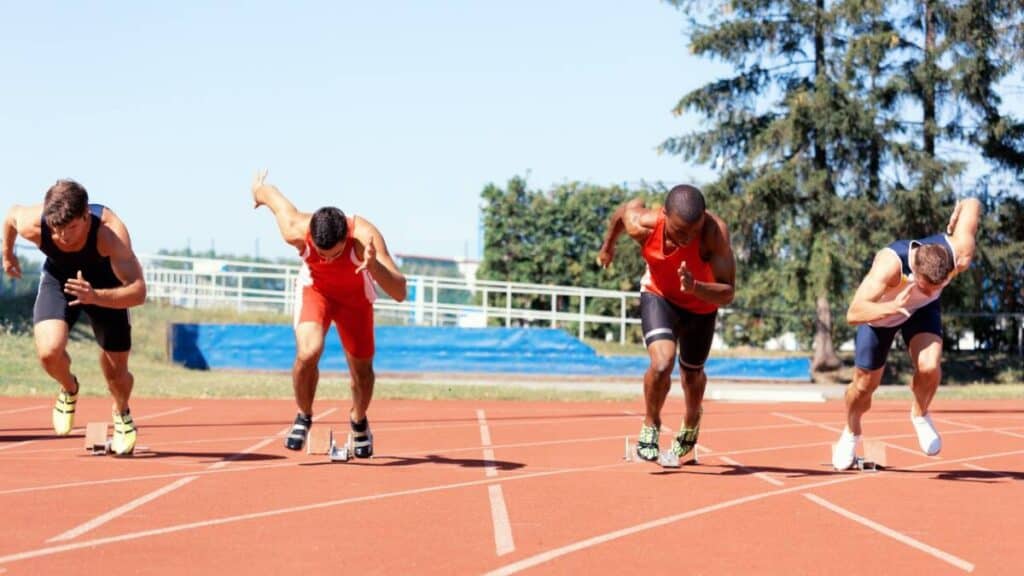Running is a popular sport that has been enjoyed by people of all ages and abilities for many years. One of the most common events in track and field is the 100m sprint. This race is known for its short distance and high intensity, making it a favorite among athletes and spectators alike.
While the 100m sprint may seem like a straightforward race, there are many factors that can affect an individual’s performance. Age, gender, and ability level all play a role in determining how fast someone can run 100m.
To help athletes and coaches better understand this, data tables have been created to show the average time it takes to run 100m based on these factors.
Table of Contents
Average Time to Run 100m by Age and Ability

The average 100m time for various age groups and ability levels. The average time for a 10-year-old boy to run 100m is 15.9 seconds, while the average time for a 30-year-old man is 12.2 seconds. On the other hand, an elite male sprinter can run 100m in under 10 seconds, while an elite female sprinter can run it in under 11 seconds.
Running 100m is a popular event in track and field. It requires a combination of speed, power, and technique. The average time to run 100m varies by age and ability. Here is a breakdown of the average times for different age groups and abilities:
| Age Group | Average Time |
|---|---|
| Under 10 | 18 seconds |
| 10-14 | 14 seconds |
| 15-19 | 13 seconds |
| 20-29 | 12 seconds |
| 30-39 | 13 seconds |
| 40-49 | 14 seconds |
| 50-59 | 15 seconds |
| 60-69 | 16 seconds |
| 70+ | 17 seconds |
💡Struggling with stubborn weight that won’t budge? Tired of yo-yo diets and empty promises? Say goodbye to past failures and hello to guaranteed success with our fail-proof, personalised calorie plans! Uncover scientifically-backed strategies that make weight loss effortless, helping you shed up to 24 pounds in just 12 weeks. This isn’t a fad; it’s a lifestyle transformation. Don’t miss out—your journey to a slimmer, more confident you is just one click away!
Check out my complete data list of all track running distances and the most popular running distances by age, gender and ability, average running times the complete guide.
It is important to note that these are just averages and there is a wide range of times within each age group. Additionally, the average times can vary based on the individual’s level of physical fitness and training.
For non-elite athletes, a time of 13-14 seconds is considered a good time for running 100m. Elite athletes, on the other hand, can run 100m in under 10 seconds. The world record for men’s 100m is currently held by Usain Bolt with a time of 9.58 seconds.
When it comes to age grading, which calculates an individual’s performance based on their age and gender, the average time for a 40-year-old male to run 100m is 13.98 seconds and for a 40-year-old female is 16.36 seconds. This can be helpful for comparing performances across age groups and genders.

Importance of 100m Sprinting
The 100m sprint is one of the most popular and exciting events in track and field. It is a short, explosive race that requires a combination of speed, power, and technique. The importance of the 100m sprint cannot be overstated, as it is often seen as a benchmark for overall athletic ability.
For athletes, the ability to sprint 100m quickly can have a significant impact on their success in their respective sports. In track and field, the 100m sprint is often the first event in a competition, and a fast time can set the tone for the rest of the meet.
Additionally, many team sports such as football, basketball, and soccer require short bursts of speed, making the 100m sprint an important component of an athlete’s training regimen.
But it’s not just athletes who can benefit from improving their 100m sprint time. The ability to run fast over short distances is a valuable skill in many everyday situations. For example, being able to sprint to catch a bus or train can save time and prevent missed appointments.
Additionally, improved sprinting ability can lead to better overall fitness and health, as sprinting is an effective way to burn calories and improve cardiovascular function.
But what is considered a good time for the 100m sprint? This can vary depending on age and ability level. According to Track Spikes, the average 100m time for all age groups is 14 seconds.
However, elite athletes can run much faster, with the current world record for men standing at 9.58 seconds and the women’s record at 10.49 seconds.
| Age Group | Average Time (Seconds) |
|---|---|
| Under 10 | 18-20 |
| 11-14 | 13-15 |
| 15-16 | 12-14 |
| 17-18 | 11-13 |
| 19-34 | 10-12 |
| 35-44 | 11-13 |
| 45-54 | 12-14 |
| 55+ | 13-15 |
As seen in Table 1, average times for the 100m sprint can vary greatly depending on age and ability level. However, regardless of age or ability, improving one’s 100m sprint time can have a positive impact on overall athletic performance and everyday life.

Factors Affecting 100m Sprinting
Running 100m involves a complex interplay of various factors that influence an athlete’s performance. Some of the key factors that affect 100m sprinting include:
- Starting strategy: The way an athlete starts the race can have a significant impact on their overall performance. A good starting strategy involves a combination of explosive power, reaction time, and proper body positioning.
- Physiological demands: Sprinting 100m requires high levels of anaerobic energy production, which places significant demands on an athlete’s cardiovascular and muscular systems.
- Biomechanics: The way an athlete moves their body during the race can have a significant impact on their speed and efficiency. Proper running form, stride length, and stride frequency are all important factors that can affect an athlete’s performance.
- Neural influences: The nervous system plays a critical role in controlling muscle activation and coordination during sprinting. Athletes with better neural control and coordination tend to have better sprinting performance.
- Muscle composition: The type and distribution of muscle fibers in an athlete’s body can affect their sprinting performance. Sprinters tend to have a higher proportion of fast-twitch muscle fibers, which are better suited for explosive, high-intensity activities.
- Anthropometrics: An athlete’s body size and shape can also affect their sprinting performance. For example, taller athletes may have an advantage in terms of stride length, while shorter athletes may have an advantage in terms of acceleration and agility.
- Track and environmental conditions: The condition of the track, weather, and other environmental factors can also affect an athlete’s performance. For example, a tailwind can provide a significant boost to an athlete’s speed, while a headwind can slow them down.
Overall, sprinting 100m is a complex and multifactorial activity that requires a combination of physical, technical, and mental skills. By understanding the various factors that affect sprinting performance, athletes and coaches can develop more effective training programs and strategies to improve their speed and efficiency on the track.
Other Track Running Times You Might Find Helpful;

Average Time to Run 100m Summary
After analyzing the data on average 100m times by age and gender, it is clear that there is a wide range of times depending on various factors such as age, gender, and athletic ability. The average time for all age groups is 14 seconds, with elite sprinters achieving times as low as 9.58 seconds.
For male rowers, the average time to row 100m ranges from 19.2 to 30.2 seconds, with the best performance typically achieved around the age of 35. In terms of running, a non-elite athlete can run 100 meters in 13-14 seconds or at 15.9mph, while Olympic qualifying times are much lower.
The age and gender grade tables for runners provide an interesting comparison of performance levels across different age groups and genders. These tables allow runners to compare their times against others in their age and gender group to see how they stack up.
Overall, it is important to remember that these average times are just that – averages. Every individual is unique and will have their own personal best times based on their own physical abilities and training. It is important to focus on personal improvement and progress rather than comparing oneself to others.
